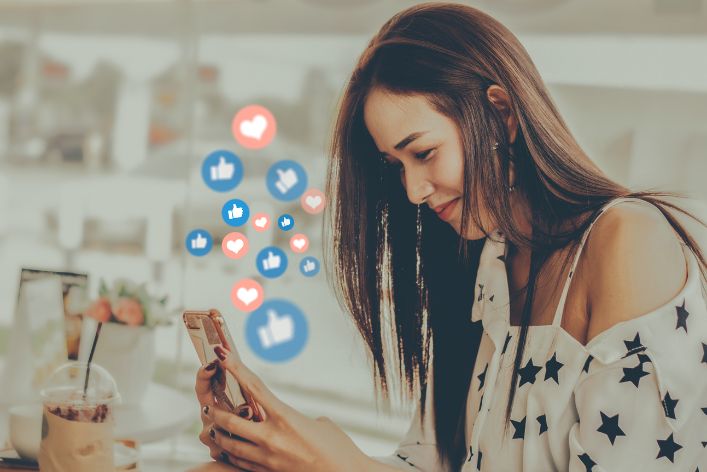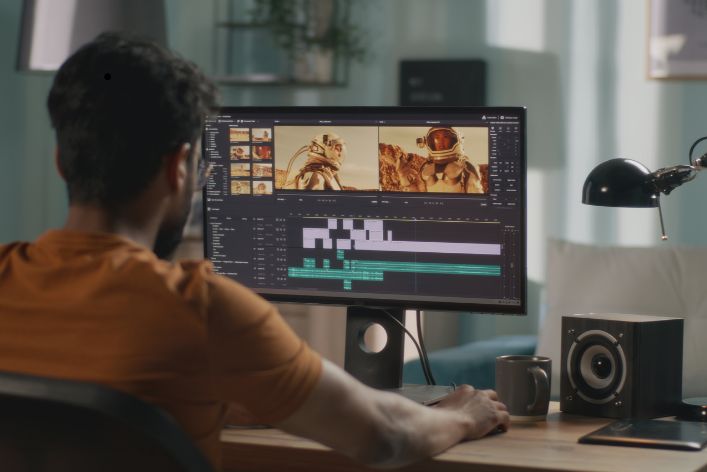Last Updated on June 9, 2023
Social media has become an integral part of our lives as we use it to communicate, share ideas, and connect with people. However, the more we use social media, the more we expose ourselves to privacy concerns.

Privacy concerns in social media usage have become increasingly important as more personal information is shared online. In a world where identity theft and cyber attacks are on the rise, it’s crucial to understand the privacy implications of using social media.
Furthermore, with the advent of big data and machine learning, privacy concerns have become even more complex. Marketers and advertisers are using the data generated by social media to target ads and messages to specific individuals, which can be perceived as intrusive and invasive.
Read: How to Create a Personal Brand on Instagram
What Are Privacy Concerns in Social Media Usage?
Privacy is defined as the ability of an individual to control their personal information and limit its access by others. With the rapid growth of social media platforms, individuals are increasingly sharing their personal information online, which potentially exposes them to privacy violations. Below are the types of privacy violations commonly observed in social media:
- Identity Theft: This occurs when perpetrators use your personal information to access your financial accounts, apply for loans, or even commit crimes in your name. Social media can provide a rich pool of personal data that can be stolen or used to impersonate you.
- Data Breaches: These are security incidents that occur when hackers gain unauthorized access to an organization’s databases, stealing users’ personal information. In 2018, Facebook suffered a major data breach that exposed the personal data of up to 87 million users. Data breaches can result in reputational damage and identity theft.
- Cyberstalking: This refers to the use of online platforms to harass, intimidate, and threaten individuals. Social media can make it easier for stalkers to access a victim’s personal information, making it even more difficult for the victim to escape the harassment.
- Employment Issues: Some employers have been known to screen job applicants’ social media profiles to determine their suitability for employment. This can lead to discrimination and unfair treatment of potential employees.
- Online Harassment: This is the use of social media to bully and intimidate individuals. Social media has made it easier for trolls to hide behind online anonymity and perpetrate abuse against others.
Privacy concerns in social media usage can be serious and have far-reaching consequences. With such a variety of privacy violations, it is important for individuals to be aware of the risks and take steps to protect themselves.
Read: How to Showcase Your Skills on LinkedIn
Why Do Privacy Concerns Arise in Social Media Usage?
With the advent of social media, people are increasingly sharing personal information and communicating with others online. While this has led to many benefits, it has also given rise to privacy concerns. Here are some reasons why:
1. Lack of control over personal information
When we share information on social media, we often do not have control over who sees it. Even if we have set our privacy settings to private, there is still a risk that our information could be accessed and used by hackers or third parties.
2. Sharing of personal information without consent
Many people don’t realize that social media companies can collect and use their personal information to target ads or other content. This information can include our location, search history, and even our conversations.
Read: The Role of Social Media in Personal Branding
3. Targeted advertising
Social media sites collect vast amounts of data about their users. This data is used to create targeted advertising campaigns that are designed to appeal to specific groups of people.
While this can be helpful for businesses, it can also feel invasive to users who feel like their personal interests and preferences are being exploited.
In summary, privacy concerns arise in social media usage when users feel like they are not in control of their personal information or that it is being shared without their consent. This can lead to feelings of distrust and frustration among users. It is important for social media companies to be transparent about their data collection practices and for users to be mindful of the information they share online.
Read: How to Use Google Analytics for Social Media Tracking
The Impact of Privacy Concerns on Individuals
Fears and concerns regarding privacy violations in social media usage have grown in recent years. The risks of identity theft, damage to reputation, and psychological impact are just some of the consequences of having personal data compromised. Here’s a closer look at these impacts in detail.
1. Fear of Identity Theft
Identity theft is a serious concern for individuals who use social media. For instance, cybercriminals and hackers can easily use personal information, like birth dates or postal codes, to take unauthorized actions using someone else’s identity.
Such actions have enormous financial implications on individuals and even damage their credit rating. This fear and concern can lead to a lack of trust and a decrease in social media usage, ultimately impacting how individuals communicate online.
2. Damage to Reputation
Privacy violations in social media can damage an individual’s reputation and even lead to cyberbullying. Information that individuals post or share online, including images, videos, and comments, can be taken out of context or shared without their consent.
This can potentially cause irreparable harm to one’s reputation, affecting job opportunities and personal relationships. For instance, harmless photographs posted on social media can be used by individuals with malicious intent to defame someone’s character and social standing.
Read: What Metrics to Track in Social Media Marketing?
3. Psychological Impact
The psychological impact of privacy concerns in social media usage on individuals can be immense. It is not uncommon for individuals to experience anxiety, stress, and depression due to the fear of how their personal information is being used online.
The constant pressure to maintain a certain persona or image on social media can also impact an individual’s mental and emotional well-being. This is evident in the rise of digital detoxes and self-care practices.
Social media’s growing influence necessitates understanding the scope of privacy issues, including identity theft, reputational damage, and psychological impacts.
Knowing these risks enables individuals to proactively safeguard personal data, ensuring a safe, positive social media experience.
Read: Understanding Digital Media Analytics and Its Importance
The Importance of Protecting Privacy in Social Media Usage
The importance of protecting privacy in social media usage cannot be overstated, as the potential for harm is significant. The following factors contribute to the imperative nature of safeguarding personal information:
Personal Responsibility
- Individuals must take responsibility for the information they share on social media.
- Posting personal information can have serious consequences, such as identity theft or reputation damage.
- Users must exercise caution when sharing sensitive information, such as financial or medical records.
- It is essential to consider the implications of posting information, as the internet has a long memory.
Legal Regulations
- Governments around the world have enacted legislation to protect personal data on social media platforms.
- These regulations include the General Data Protection Regulation (GDPR) in the European Union and the California Consumer Privacy Act (CCPA) in the United States.
- Social media companies must comply with these laws, or they risk facing legal action and fines.
- The laws provide individuals with greater control over their personal data and give them the right to request a copy, rectify inaccuracies, and delete information.
Read: What are the Best Practices for Twitter Marketing?
Social Media Platforms’ Responsibility
- Social media platforms play a crucial role in protecting users’ personal data.
- They must provide users with clear, concise, and easily accessible privacy policies.
- Platforms must obtain explicit consent from users before collecting, processing, or sharing their personal data.
- They must also have robust security measures in place to prevent data breaches and have procedures in place to notify users if a breach occurs.
The importance of protecting privacy in social media usage is crucial to safeguard individuals’ personal information.
It is essential for users to take personal responsibility for the data they share, and social media platforms must play their part in protecting users’ privacy through transparent policies and robust security measures.
Governments around the world have also stepped in to regulate the use of personal data on social media to ensure that users have greater control over their personal information.
By working together, users, social media platforms, and governments can create a safe online environment where data breaches and identity theft are minimized.
Read: How to Leverage LinkedIn for Professional Networking

Ways to Protect Your Privacy in Social Media Usage
In today’s technological age, social media has become an integral part of our daily lives. Hence, it is essential to understand the impact of social media on our privacy and how we can protect our personal information online. Here are some ways to safeguard your privacy while using social media:
Adjusting Privacy Settings
- One of the easiest ways to avoid privacy concerns on social media is by adjusting your privacy settings.
- Make sure that only trusted people can view your profile and posts. This can be done by customizing your privacy settings according to your preference.
- Limit the number of people who can see your personal information such as your contact details or location.
- Review your privacy settings regularly to ensure that you are in control of your information at all times.
Read: How to Use Instagram to Grow Your Brand
Being Careful about What You Post Online
- The internet has an almost endless memory, and once you post something online, it’s almost impossible to erase it completely.
- Keep a check on what you are posting online as it can be easily accessed by people beyond your intended audience.
- If you are unsure about whether to post something or not, it is better to err on the side of caution and not post it at all.
- Moreover, avoid posting sensitive information such as your financial details, personal identification information, or your schedules.
Read: Understanding the Different Social Networking Platforms
Using Anti-virus Software
- Using an anti-virus software is a must-have for every internet user, including social media users.
- An anti-virus software can help safeguard your computer against malware, viruses, and other types of online threats.
- Moreover, it can also protect your personal information online by preventing hackers from accessing your computer.
- Having anti-virus software on your computer is an effective way of protecting your privacy while using social media platforms.
By implementing the above measures, social media users can have greater control over their privacy online. One must remember to take the required precautions and practice safe social media usage. Social media can be an enriching experience, and by being mindful of privacy concerns, we can continue to enjoy its benefits.
Read: How to Find and Collaborate with Social Media Influencers
Conclusion
Social media is pervasive in our daily lives, bringing along privacy concerns due to increasing use. Privacy, a fundamental right, requires safeguarding online as well.
Social media platforms collect vast personal data, including personal information, search history, and location. Misuse by hackers or advertisers jeopardizes our privacy.
Understanding potential risks and adopting protective measures can mitigate these concerns. This includes understanding platform privacy policies, limiting personal information shared, and routinely reviewing privacy settings.
Avoid sharing sensitive data, like addresses or private photos, and monitor content posted on social media, as it can affect reputation and privacy.
In essence, it’s crucial to actively protect privacy during social media use by understanding risks and adopting appropriate measures.
Read: How to Use Social Media to Drive Sales
Before You Go…
Hey, thank you for reading this blog post to the end. I hope it was helpful. Let me tell you a little bit about Nicholas Idoko Technologies. We help businesses and companies build an online presence by developing web, mobile, desktop, and blockchain applications.
We also help aspiring software developers and programmers learn the skills they need to have a successful career. Take your first step to becoming a programming boss by joining our Learn To Code academy today!
Be sure to contact us if you need more information or have any questions! We are readily available.











